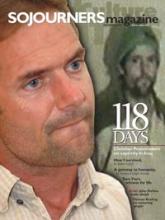In “Back from the Brink?” September-October 2006, David Cortright argues well for U.S. engagement with Iran, a dialogue many of us have advocated since the 1980s. His piece, however, is weakened by his blindness to the 1979 hostage-taking of the U.S. embassy in Tehran by Islamic “students”/terrorists, the incident that fractured relations then and has continued to poison them. The Iranian government has yet to apologize for this horrific violation. This action, sanctioned by a regime that has continued to the present, violated basic human rights, international and bilateral treaties, and Quranic teachings.
It is also incorrect to say that the “United States has been hostile toward the Islamic revolution since its victory in 1979.” As a diplomat in Tehran at that time, I personally delivered to cabinet ministers Washington’s acknowledgment of the revolution, recognition of the new government, and our desire to work constructively with it. Some of us personally believed that this posture was unrealistic, in that it seemed to be based on a belief that Ayatollah Khomeini would be content to exercise authority over Iran’s social and religious life, leaving civil governing to secular forces, as represented by the first post-revolution government headed by Prime Minister Mehdi Bazargan. The truth was, and sadly continues too much to be, that Khomeini, the radical Islamic revolution, and Iran’s anti-Americanism were intertwined.
Clyde D. Taylor
Washington, D.C
Read the Full Article
